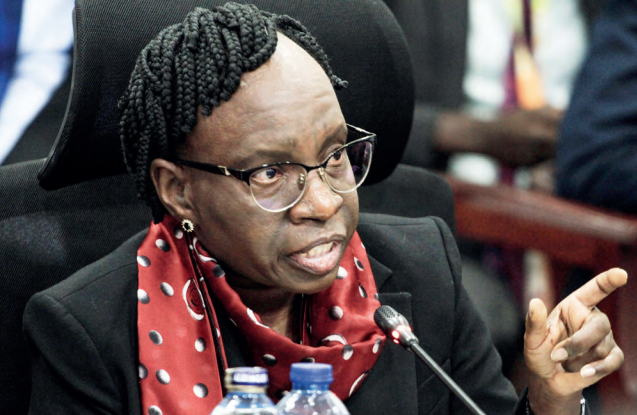
The Ministry of Foreign Affairs will leverage Public-Private Partnerships to improve its diplomatic infrastructure due to government cash constraints.
Through the final Sessional Paper No 1 of 2025 on Foreign Policy submitted to Parliament, the MFA has asked MPs to consider and support adopting PPP arrangements.
This, the MFA says, will ensure optimal utilisation of idle properties abroad, maximise their commercial value, and save rental costs estimated at Sh3 billion annually. PPPs will also assist in acquiring new properties and resultant monetisation.
The allocation for acquisition and maintenance in foreign missions and at headquarters has been “largely inadequate, and significantly lower”, compared to its requests to the Treasury for planned capital projects.
One key delayed project is the new headquarters, which is four years overdue.
The Auditor General’s reports have consistently flagged the poor state of some of Kenya’s prime properties in major global capitals, which are deteriorating due to lack of resources for repairs. In some cases, the properties have been condemned.
In the 2023-24 financial year, Auditor General Nancy Gathungu revealed the sorry state of some embassies. Problems include leaking roofs, damaged ceilings, cracked walls, peeling paint and abandoned renovations. The audit report painted a picture of inhabitable residences for the country’s top envoys abroad.
Some of the dilapidated embassies are in Nigeria, France, Germany, Tanzania and China.
“For instance, the Kenya House-New York was constructed in 1979 and is now dilapidated and unused for more than 10 years, despite being the designated official residence for the Ambassador. The multi-billion-shilling property in Kenya’s foreign missions needs proper financing, management, maintenance, and efficient utilisation. Some of the properties abroad are not insured,” the sessional paper read.
The problems don’t stop there, as the ministry says its Old Treasury headquarters continues to face capacity challenges, such as inadequate office space, lack of modernisation and up-to-date equipment to align with the changing international system.
“This challenge has implications for effective coordination and management of Kenya’s foreign service,” the paper read.
China is expected to assist in building a new MFA headquarters through grants.
Some directorates are housed outside of the headquarters, while PCS Musalia Mudavadi’s office is based at Railways and the State Department of Diaspora Affairs is based in Upper Hill.
Given the situation, the ministry wants to take advantage of the PPP Act (2021), which promotes private sector participation in public infrastructure projects.
“The Act presents an opportunity to structure a PPP arrangement with private parties to develop Kenya’s diplomatic infrastructure,” the sessional paper read. “In view of the foregoing, the Ministry will work with the National Treasury to enter PPP arrangements.”
PPP arrangements for monetisation would allow private parties to invest in the properties, build official residences for envoys, residential properties for staff members, and extract commercial value for properties in prime locations
“These developments can also be undertaken in partnership with Kenya's private sector and state corporations such as the National Social Security Fund (NSSF),” the sessional paper read.
Historically, the Kenyan government has acquired its diplomatic properties mainly through purchase, construction and leasing. The focus has been to prioritise ownership as opposed to leasing to reduce the escalating expenditure on leasing.
The portfolio of government-owned properties includes 22 chanceries, 20 ambassadors’ residences, 76 staff houses, two commercial buildings and three undeveloped plots spread across 29 out of 68 missions. Locally, the ministry has custody of the Old Treasury building, which serves as the Ministry headquarters.





![[PHOTOS] Ruto and Raila share fish meal](/_next/image?url=https%3A%2F%2Fcdn.radioafrica.digital%2Fimage%2F2025%2F05%2F5003b8f6-969f-4b43-ba70-7ee9d3e620b9.jpg&w=3840&q=100)
![[PHOTOS] Kindiki visit brings Embu town to standstill](/_next/image?url=https%3A%2F%2Fcdn.radioafrica.digital%2Fimage%2F2025%2F05%2F4719736e-3251-4a99-aa0e-d1e2b85556ea.jpeg&w=3840&q=100)



